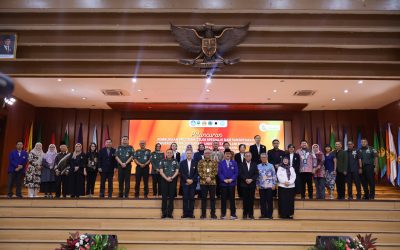West Java, Indonesia — A research team from Universitas Padjadjaran has made a significant discovery in the field of cancer biology by uncovering how disruptions in a key cellular mechanism may contribute to tumor formation. The study was led by dr. Andri Rezano, M.Kes., Ph.D., from the Department of Biomedical Science, Faculty of Medicine, Universitas Padjadjaran, and was published in the International Journal of Molecular Sciences, a high-impact international journal.
The research focuses on GANP (germinal center-associated nuclear protein), a gene involved in transporting genetic information within cells. GANP is part of the TREX-2 complex, which helps move mRNA from the nucleus to the cytoplasm. However, when GANP is overexpressed or behaves abnormally, it may interfere with the cell’s ability to repair damage to its DNA—especially damage that occurs during transcription, the process where genetic instructions are read and copied.
This malfunction leads to a failure in the transcription-coupled nucleotide excision repair (TC-NER) pathway. As a result, damaged DNA is not properly fixed, allowing harmful mutations to accumulate. Over time, this can promote tumorigenesis, the process by which normal cells turn into cancerous ones.
“We found that aberrant GANP expression affects how cells respond to transcription-blocking DNA damage,” explained Dr. Rezano. “This disruption may be one of the underlying causes of genome instability that eventually leads to cancer.”
The study used both mouse models and human cell lines to show how GANP abnormalities impact cellular repair processes and accelerate the transformation into cancer-like cells. These findings highlight the dual nature of GANP: while essential for normal gene expression and immune development, its uncontrolled activity poses a risk to genome integrity.
This research opens the door to potential early detection methods or targeted therapies for cancers linked to transcription-coupled DNA damage. By identifying GANP as a key molecular trigger, scientists can begin to explore ways to control or correct its function before cancer progresses.
This scientific contribution supports Sustainable Development Goal (SDG) 3: Good Health and Well-being, particularly in the area of non-communicable disease prevention through biomedical innovation. It also strengthens Universitas Padjadjaran’s position as a center for impactful molecular research, further contributing to the university’s visibility in the Times Higher Education (THE) Impact Rankings.






0 Comments